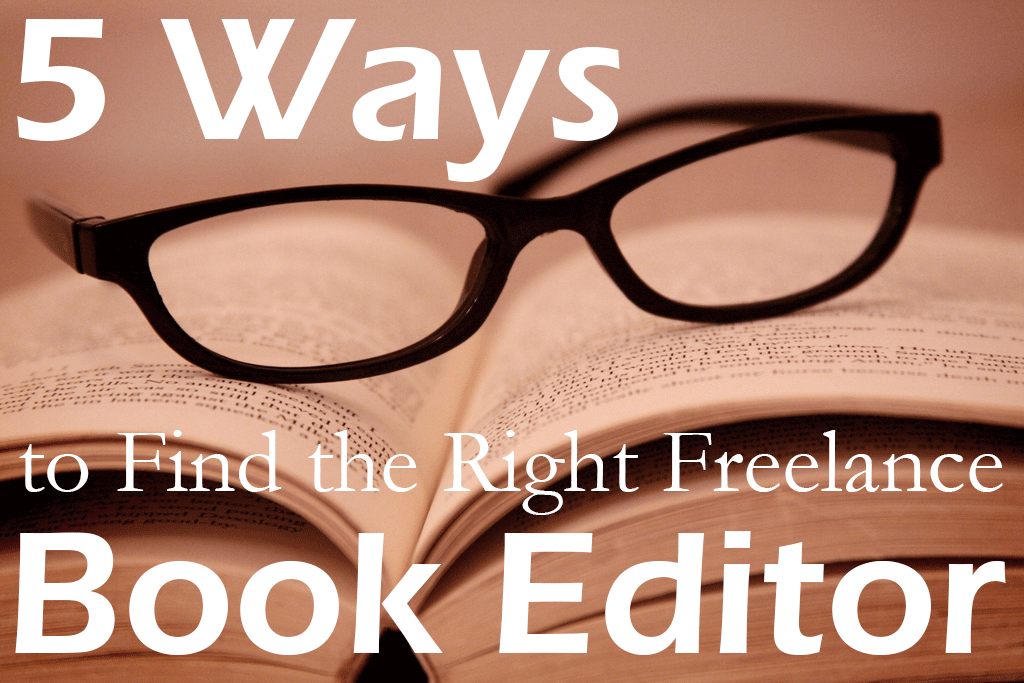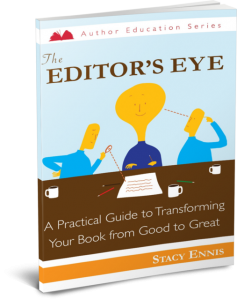 Author’s note: This post originally appeared on JaneFriedman.com, an excellent blog by the fantastic Jane Friedman. It prompted a hot debate, as you’ll see in the comments on her site, and resulted in media coverage all over the web. Since it still remains a popular article, I’m bringing it to my blog for a second post. Enjoy!
Author’s note: This post originally appeared on JaneFriedman.com, an excellent blog by the fantastic Jane Friedman. It prompted a hot debate, as you’ll see in the comments on her site, and resulted in media coverage all over the web. Since it still remains a popular article, I’m bringing it to my blog for a second post. Enjoy!
If you’re ready to hire and work with an editor, you may not know the first thing about how to start looking for one or how to evaluate candidates once you’ve found them.
1. Look for someone with experience.
First things first: If you’re going to hand over your manuscript to an editor, give it to a skilled, qualified editor. Just because someone teaches English or has a degree in English (or even writing), that alone doesn’t qualify that person as a professional editor. A qualified professional editor not only has appropriate academic credentials, but also, most importantly, has a proven track record of book-editing experience.
The experience part is particularly critical. I know many professional editors who are wonderful in their craft and have outstanding editing skills, but actually know very little about the book-editing process. They may have edited articles or shorter works, but book editing is a different game and requires a different level of expertise. An editor looking to gain book-editing experience may offer to do your book, and it may be tempting to take this low-cost option. But, unless he’s naturally talented or comes with excellent references, without the real experience of working on book-length manuscripts, he isn’t really the right editor for you. Don’t let your manuscript be practice.
2. Find a qualified editor that brings good energy to the process.
“An author and editor are on the same team,” says Pooja Lohana, a freelance writer and editor in Melbourne, Australia, who has ghostwritten three nonfiction books and edits several magazines and websites. “Editors who possess human relations skill and the art of negotiating and convincing with solid backup reasoning are authors’ favorites.”
Just like a good editor can substantially impact your manuscript in positive ways, a not-so-good editor can waste time and money—and might be a roadblock in your success as an author.
“Some people suck. In any profession that’s true, and editing is no exception,” says Jessica Stillman, a freelance writer based in London, who has blogged for CBS MoneyWatch, GigaOm, and Brazen Careerist, among others.
“I’ve had nice editors who give lots of encouragement and engage with me on a friendly human level, and I’ve had some that can’t be bothered to type a two-letter salutation in an e-mail and are generally brusque (and I’m sure overworked). … I no longer work with the editors who stress me out with their gruffness and lack of human touch, and I’m happier for it. You’re not always in a position to choose, but if you can, avoid people who make your working life worse.”
3. Look in the right places.
Entering keywords into Google isn’t usually the best approach to finding the right editor for your book. Just like anything else, it’s always best to get a referral. Ask friends and colleagues for recommendations.
If you’re finding this to be a dead end, check the acknowledgments in well-written books, as editors are usually listed there. But be realistic: The editors of best-selling books or those published by the New York publishers might be out of your price range. It’s best to stick with regionally published books, if possible, as well as books published by partner publishers or small presses, since they tend to work heavily with freelance editors. Also, don’t be afraid to e-mail authors and ask if they were happy with their editors. Additionally, you can call local or regional publishing houses for a referral.
Finally, if you’ve exhausted these two options (really exhausted them, not just spent a day or two asking around), start looking online. A good starting place is the Editorial Freelancers Association (EFA). On the organization’s site, you can access their many resources, including guidelines for hiring and working with editors, a rate chart, and a job list where you can post your project. The organization is well-respected in the editorial field and has paying members, so you can feel more confident finding an editor on their site than, say, Craigslist.
4. Interview the editor’s past clients.
Regardless of which direction you pursue to find your editor, whether you get a referral or connect with a freelance editor online, be sure to talk to someone the editor has worked with in the past or, at the very least, look at a work sample (see next section). Be wary of any editors who aren’t willing to provide a reference, even if it’s just a written recommendation from a client.
As you talk to a previous client of a prospective editor, ask these key questions:
- What type of book did the editor work on?
- Were you happy with the quality of work?
- Was there anything you were unhappy with?
- Did the editor meet the agreed-upon deadline?
- Did you end up paying what the editor quoted at the outset of the project? If not, did the editor communicate with you before charging you more?
- Did the editor have a positive attitude throughout the project?
- Was the editor willing and able to explain his changes? If questioned, did the editor have the attitude of a teacher and a willingness to go over details?
- Does the editor live locally? If not, did you find working electronically relatively seamless?
- Would you hire this editor again?
Note that it’s usually best to hire an editor who has worked in your genre or a genre similar to your own.
5. Interview the editor and work on a sample chapter together.
Aaron Patterson, CEO of StoneHouse Ink and best-selling author of four titles, adds, “[For] my first book, I hired a proofreader thinking she was the creative and everything in one … it was a mess, and I still have the reviews in Amazon to prove it.” Learn from his mistake, and ask a lot of questions. Here’s a starting list.
- What types of books have you edited (fiction, nonfiction, etc.)?
- What is your writing and editing background?
- What are your major editing accomplishments?
- What is unique about your editing process?
- What types of books do you enjoy working with?
- Are you willing to provide an editing sample?
- Prior to signing a contract, can you edit one chapter to make sure we’ll work well together?
- What makes you a good fit for my manuscript?
“Don’t sign a contract with an editor until you have worked with that person on a sample chapter together,” advises Maryanna Young of Aloha Publishing. “It should either really work, or go ahead and find another editor.”
I couldn’t agree more, but don’t expect to get an editing sample for free, especially from busy or in-demand editors. A legitimate editor should be willing to do an editing sample (preferably the first chapter) for a normal or slightly discounted fee, prior to signing the contract. Then, when you discuss the overall project budget, if money isn’t a concern, don’t feel the need to broadcast this fact. If money is a concern, be sure to let your potential editor know.
What tips or experiences can you share about finding the right freelance editor?
(Image courtesy Lauren Nelson | flikr)
 This post was excerpted from the book The Editor’s Eye by Stacy Ennis (@stacyennis). Copyright © 2013 by Stacy Ennis. Reprinted with permission of the publisher, Night Owls Press.
This post was excerpted from the book The Editor’s Eye by Stacy Ennis (@stacyennis). Copyright © 2013 by Stacy Ennis. Reprinted with permission of the publisher, Night Owls Press.
A very helpful article, thanks! I’ve been trialing editors for my current romance WIP, including industry stalwarts from The Big Four, to freelancers and hobbyists, *budget* options and the gurus who cost a pretty penny. From 9 to 5 I’m an editor myself, so it’s been great experiencing the process from a writer’s perspective. I’ve documented some tips below on what to look for in an editor (and what should send you running), which you might find interesting.
http://catehogan.com/25-things-look-for-romance-editor/
I’m glad you found this helpful! Thank you for sharing your article. Best of luck with your WIP. 🙂